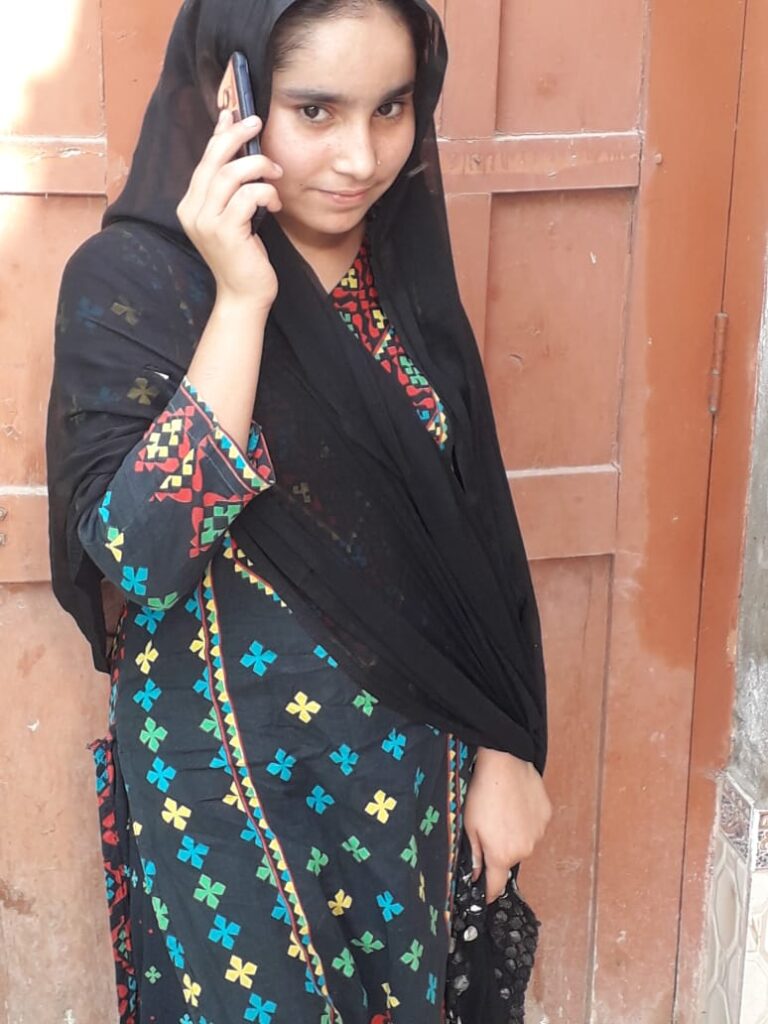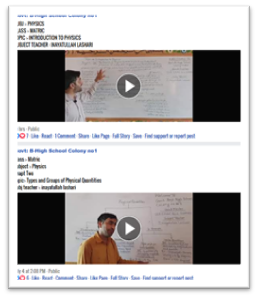As COVID-19 spread in the Sindh Province of Pakistan earlier this year, school-age children were among the hardest hit as schools shut down to keep staff and students safe. The USAID-funded Sindh Community Mobilization Program (CMP) quickly stepped in to keep students engaged at home.
The ‘Care for Community’ (C4C) Initiative, established by the Blumont CMP team in April 2020, used digital platforms to keep target communities informed as the COVID pandemic evolved. Teachers, students and parents participated in virtual meetings conducted by the CMP team, benefiting from videos, phone calls, and text messages with COVID-19 updates and preventative measures. Community members shared messages of appreciation saying that the virtual interaction made them feel a sense of belonging and connection during a time of isolation. The C4C initiative reached 3,000 people in 400 schools across 10 districts in Sindh.

The C4C initiative used calls, texts, and video updates to keep communities connected amidst the pandemic.
With the success of the C4C initiative, teachers saw an opportunity to move to virtual lessons as well.
“The motivating factor for me to support online classes was the C4C initiative,” said Arshad Baig, the Karachi District Education Officer. “The School Education and Literacy Department was already debating ways to cover the students’ learning loss this year and C4C gave us clarity that if we can organize online meetings, why not online classes as well?”
Adapting to online learning proved challenging for government public schools with limited resources. To meet this need, Blumont worked with district education departments, school administration, and teachers to provide the equipment and training to conduct online learning. Through close collaboration with local officials, Karachi became the first district in Sindh to begin conducting online classes for students.
“With C4C I learned that I can conduct my classes online using Google Hangouts or Zoom,” said Syed Ghazanfar Ali, Head Teacher at Government Boys High School in Karachi. “In the beginning only a few students would attend, but I’m very happy that almost 60 students attend my online classes now.”

Teachers used digital platforms to reach students at home.
The online learning model was soon adopted by other districts. In Kashmore, physics teacher Inayatullah Lashari, recorded lectures and uploaded them to the school’s Facebook page.
“Online classes allow students to continue their studies, especially since we are at a crucial stage with our Board examinations coming up,” says Muhammad Hussain, a 10th grade student. “Although we face challenges caused by weak internet connections and power outages, it is still fun to connect with our classmates and continue learning together.”
As schools in Sindh begin to reopen and learning moves back to the classroom, CMP is working with teachers and local leadership to help keep students safe.



